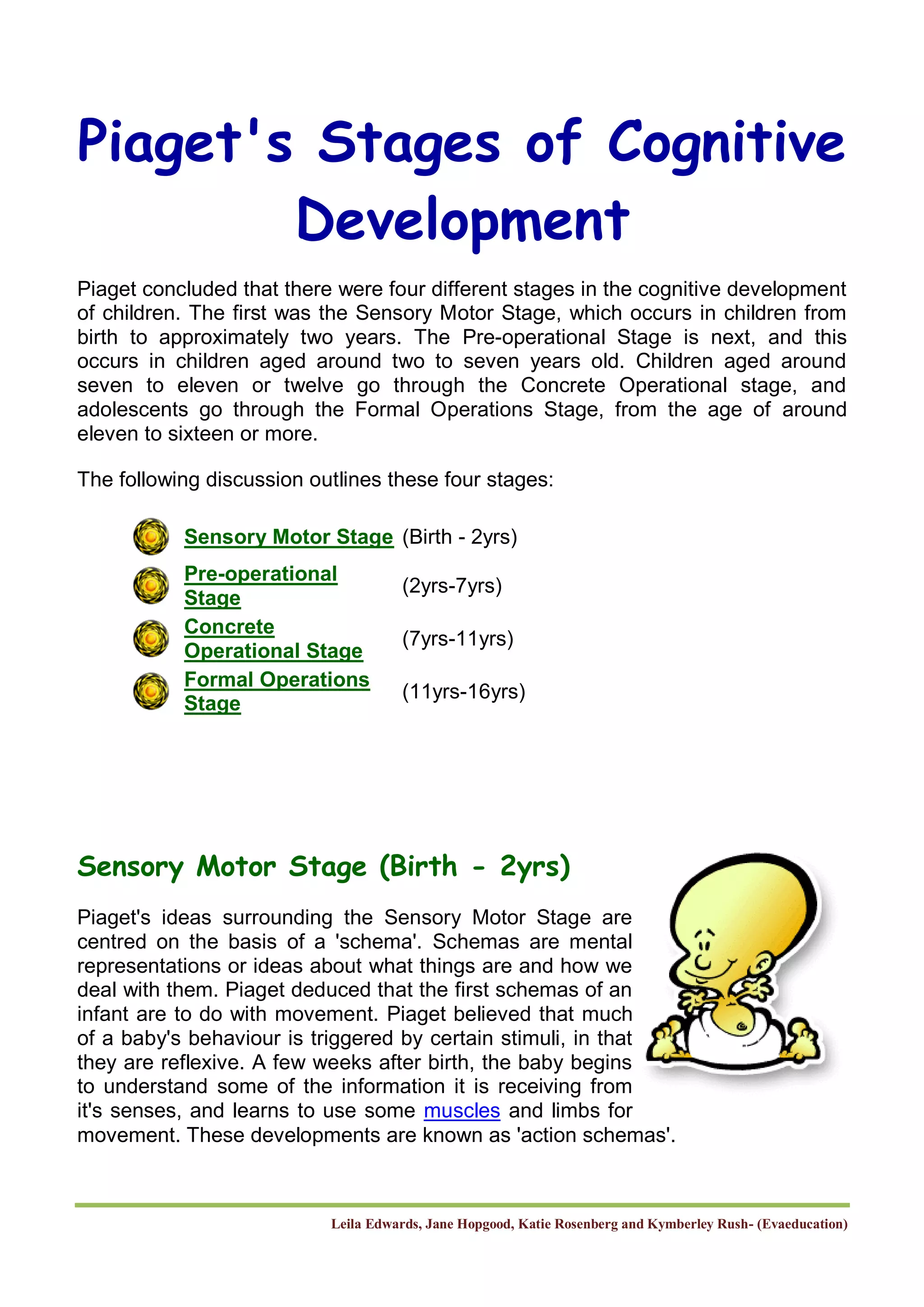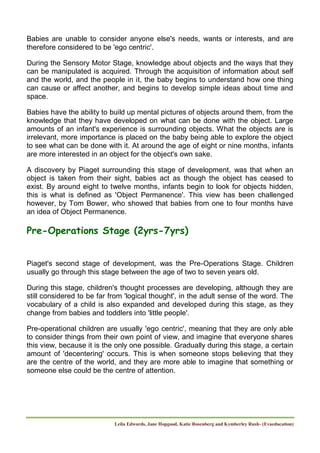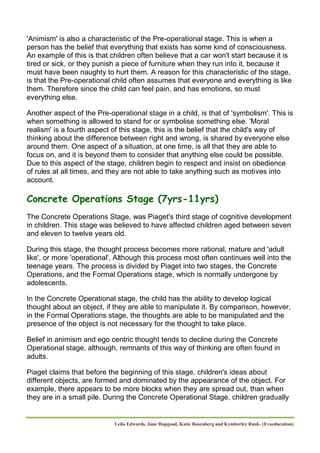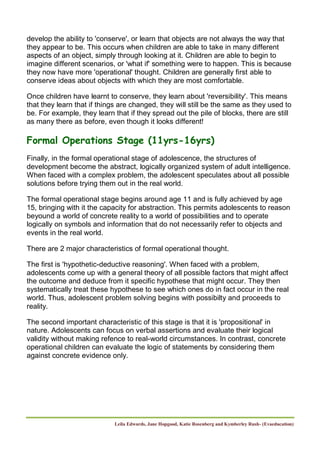Piaget identified four stages of cognitive development in children:
1) Sensory motor stage from birth to 2 years where children learn through senses and motor skills.
2) Pre-operational stage from 2 to 7 years where thinking becomes symbolic but still egocentric.
3) Concrete operational stage from 7 to 11 years where logical thought emerges based on real objects.
4) Formal operational stage from 11 to 16 years where abstract logical thought allows for hypothetical-deductive reasoning.



